I’d said goodbye to my sister and left her on a plane from Lamu, bound for Nairobi. She’d gone home and I was in Malindi, travelling solo down the coast of Kenya. Around here, locals often call travellers ‘Mzungus’ – it’s a Swahili word which roughly translates to ‘one who roams around’ or ‘wanderer’. It all started with a couple of lost European missionaries wandering in circles, and over the years it has come to mean white people in general. Mzungu that I am, I was keen to do a bit of wandering on my way down the coast to Mombasa.
‘Ciao, tutto bene?’ said the taxi driver who picked me up outside Malindi airport. ‘Molto bene’ I replied, and blinked, thinking to myself ‘Whaaat?’. Kenya is not a former Italian colony (pretty much nowhere is a former Italian colony). But as it turns out, the northern coast of Kenya is a hotspot for Italian tourists and I seemed to be the only non-Italian around.
Fine by me, I thought, and kicking back on a big sofa in my hotel garden I ordered myself a pizza, an espresso, and then an aperol spritz:

I’d wandered to Watamu with the plan of seeing the nearby Gede ruins. So after breakfast the next day (brioche and cappucino, anyone?), I arranged with a boda boda (motorbike taxi) driver named Kodak to take me there on his motorcycle.
Kodak dropped me at the gate and I hired a guide named Daniel to show me around the atmospheric remains of this medieval Swahili city. There are quite a few ‘lost cities’ along the East African coast; at its height Arab-Swahili civilisation stretched from present-day Somalia down to Mozambique. Excavations here have revealed a sophisticated society of affluent traders well connected with Europe, the Middle East and Asia. Built of jagged coral barely blunted by time, Gede’s once-grand palaces, mosques and tombs now stand deserted in the jungle amongst ancient baobab trees, blanketed with heavy creeping vines and smothered in bright green vegetation.


Daniel and I had Gede to ourselves.

As we climbed over the crumbling foundations of the city’s inner and outer walls, up and down worn steps and through arched doorways from one chamber to the next, he told me that no one knows for sure why Gede was abandoned – just that it was, sometime by the 18th century. He blamed it on siege and warfare, or possibly a lack of water – it’s known that at some time the city’s wells dried up.
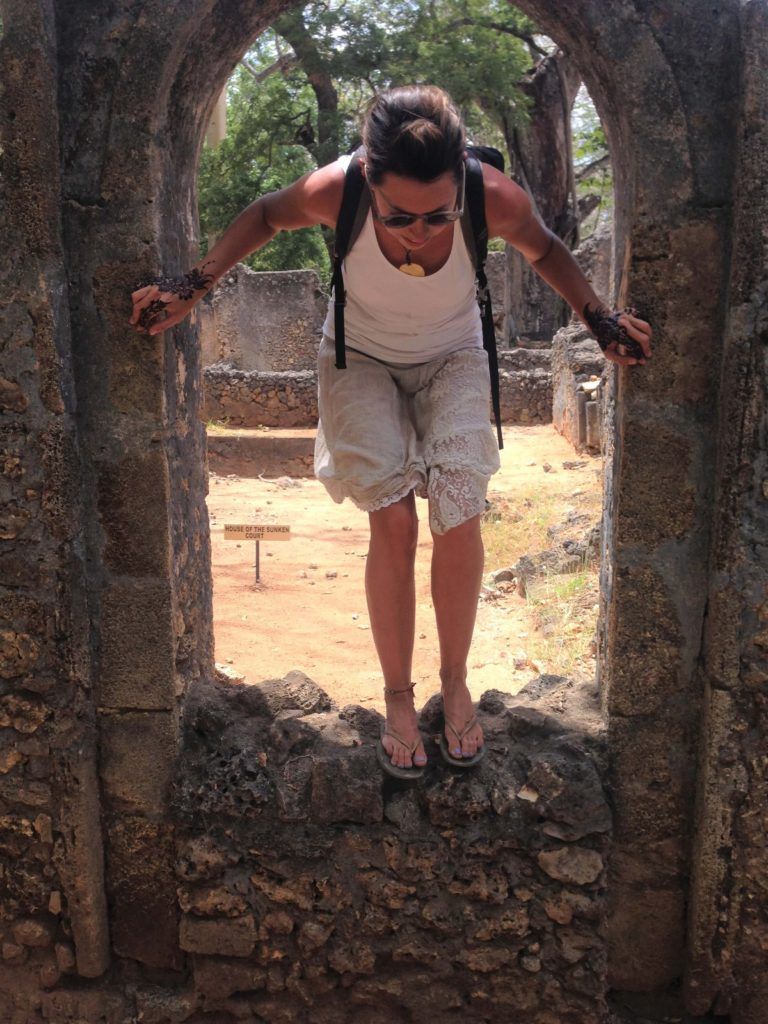
Back at the entrance, I noticed this much later addition to the compound:

Not having any suggestions, I thanked Daniel and left. I found Kodak sleeping under a tree, with one eye open, apparently – he saw me coming and we drove back to town.
Watamu isn’t just about ruins and history – I went for a long walk around town and along the beautiful white-sand beaches surrounding it.


In the process I met mostly every beach-boy in the vicinity – local guys intent on attaching themselves to every mzungu who passes by, selling their services as guide, friend, tailor, driver, adviser, sailor, craftsman, fisherman or wildlife expert. Between Barack trying to show me some starfish he’d captured and thought I’d like to photograph; Freddy inviting me for drinks at a beach bar to talk about his startup business; and Ahmed proposing a sunset cruise to who knows where, I quickly adopted a policy of just not returning any friendly greetings and never glancing up at shouts of ‘Ciao bella! Come stai?’.
Another pizza and good night’s sleep later, and I was ready to wander on. I went out into the street and flagged down a boda boda. Sammy agreed to drive me out to the junction where I could find a matatu (mini bus) bound for Kilifi, further south. ‘We’re running away to America!’ Sammy shouted as I hopped on the back of the bike and we took off. We pulled up beside a matatu on the side of the road a short time later and the conductor loaded my backpack onboard and ushered me into the front seat. I was happy; I had a seat mostly to myself – there was another woman crammed in between me and the driver, but I’ve seen worse.
Eventually the matatu idled next to some marketstalls in a busy street congested with traffic and pedestrians. ‘Mzungu, this is Kilifi’ said the conductor, leaning forward and tapping my arm. I climbed out, and got a boda boda to a nearby ecolodge, and arranged to go sailing that very evening:

For a change of pace from soft sandy beaches lapped by gentle turquoise waves, I wanted to see the Vuma cliffs – a place where the ocean meets the shore with a vengeance. I clung to the back of yet another boda boda, as my latest driver Juma blazed through banana plantations and mango groves, past little villages and kids walking home from school shouting ‘Ciao jambo!’, and then on through a dusty quarry where chalky white powder coated everything in sight.
Juma and I scrambled over the sharp rocks to the edge of the jagged black cliffs. They stretched away in either direction, windswept and desolate.




I watched the ocean churning in front of me, huge waves crashing and breaking on the cliffs on either side, and got drenched in the spray.

Juma looked at my hennaed hands. ‘Your hands are really beautiful’, he said, and then added ‘Of course, I don’t know how you look normally’, which tempered the compliment somewhat.
I’d asked Juma to pick me up again in the afternoon and drive me to Bofa beach. I waited for him outside the guesthouse and he roared up on his motorcycle and whooped when he caught sight of me. That kind of enthusiastic greeting is catching and I whooped right back at him and jumped on the bike.
Walking along the beach we met a fisherman wading out of the ocean, and we bought this freshly-caught octopus from him.
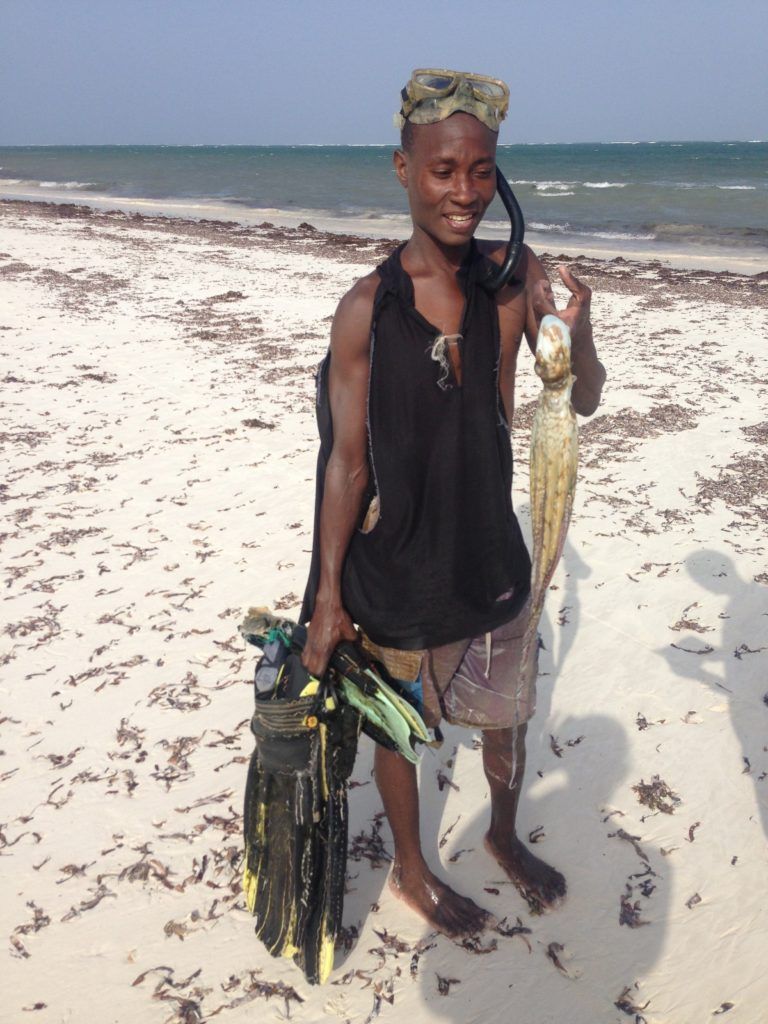
The fisherman tenderised the meat by beating the octopus wildly on the sand.
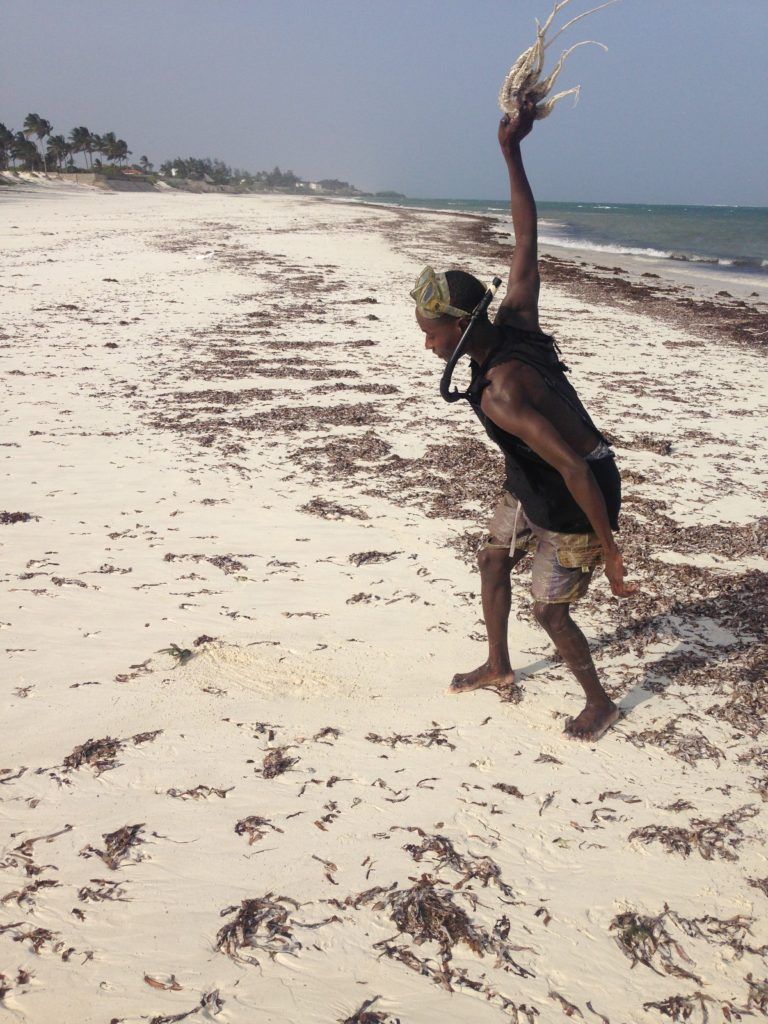
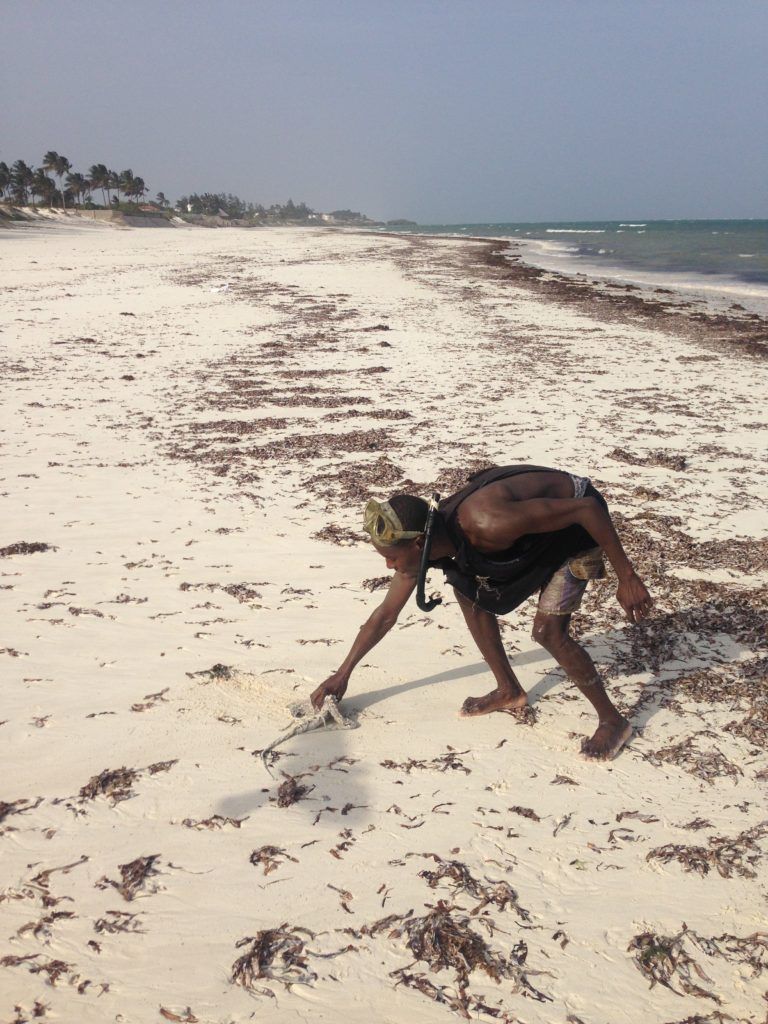
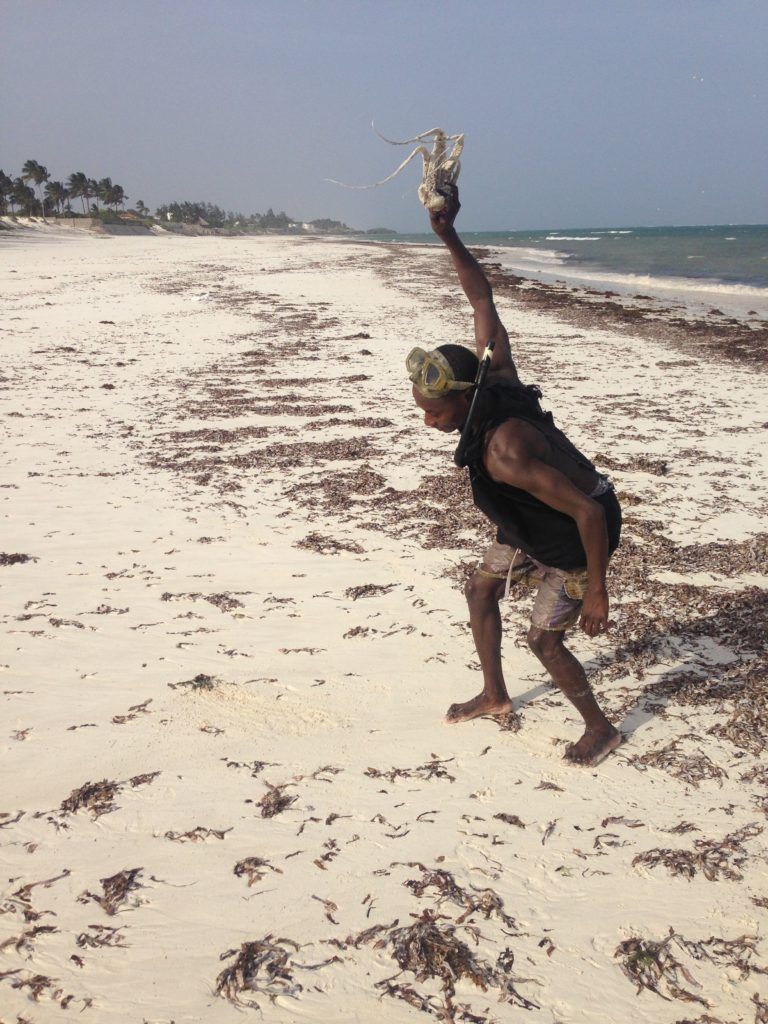
Juma and I set off for town, me holding the octopus by its mouth.
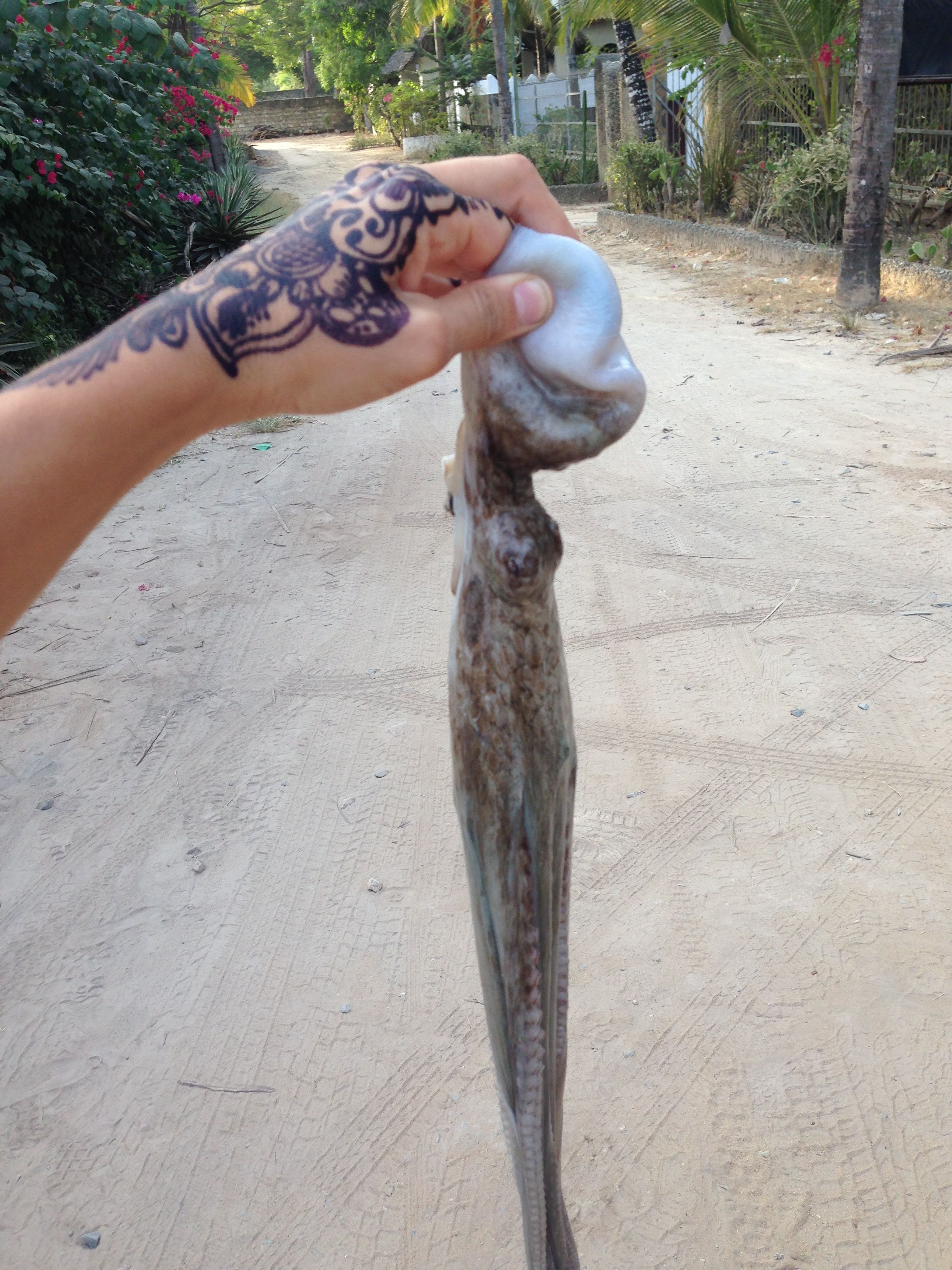
But we hadn’t got far before we punctured the tire and had to push the bike (or Juma pushed; I was still swinging the octopus) until we met a mechanic who patched it on the side of the road.

Then we picked up a coconut and drove to Juma’s village where he and I cut up the octopus and his sisters cooked it with the coconut.
We all pitched in and ate it with our hands, straight from a big bowl.
And so as it often happens when I travel, a string of isolated, sort of strange and definitely unexpected events all combined together to make the best kind of travelling day.
Having said goodbye to Juma, provider of octopi and strangely fun outings, I hit the road again, heading for Mombasa. I noticed this sticker emblazoned on the window of my matatu:
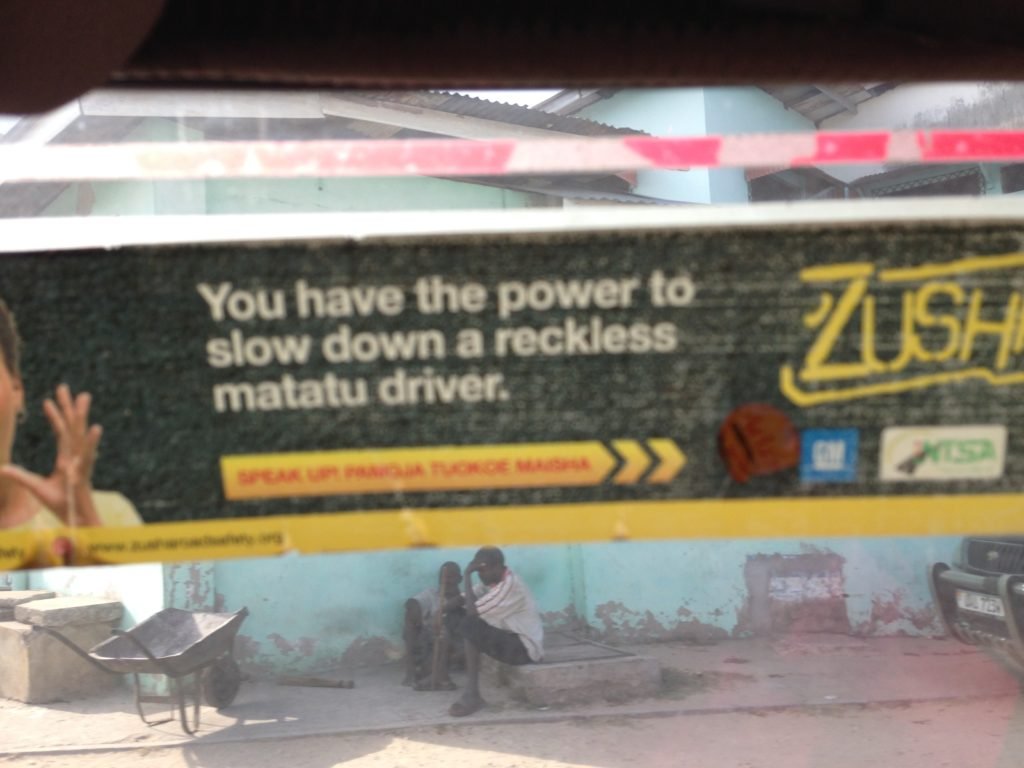
The driver was clearly oblivious to the threat of passengers ringing up a report line and tattling as he drove down the highway with wild abandon, and we nearly collided head on with an ambulance and then a nursery school bus. Although to be fair to the driver, both those vehicles actually cut ours off first.
Still, I got to Mombasa in one piece and argued a tuk tuk driver on the outskirts of town into an agreeable price to take me to English Point, where I was going to meet an ex-pat friend. Andrew and I know each other from church back home, although we were both pretty sure we’d never actually talked in person. But a friend from home is a friend from home, and he’d given me and Goof plenty of useful advice about our travel plans here in Kenya and offered to help me out with a place to stay and things to do in Mombasa.
We caught up on our travel adventures over a delicious Swahili dinner at a casual streetside eatery:

Andrew put me in touch with his friend Moody, who I met at Fort Jesus (Andrew told him to look out for a ‘tall Mzungu’). Moody guided me around the fort the Portugese built in 1593, the nearby Old Town and the busy spice market.

Arriving in Mombasa brought my mzungu-meandering down the coast to a close. I’d made it: as the saying goes, ‘Not all who wander are lost’. I decided to interpret this literally – it’s usually Oyv who does the map-reading on our trips together.
I flew from Mombasa back to Nairobi, landing at Jomo Kenyatta International Airport with time to spare – it was only ten pm and my flight home was due to depart at six the next morning. So I spread out my sarong and slept remarkably well on the floor outside Departures. After the intense heat and humidity along the coast, Nairobi at night time felt freezing, which was a bit alarming given I was heading for Europe. And then it was time to go.
Read More
For more of my adventures (and misadventures) in Kenya, check out the rest of my stories from the road.
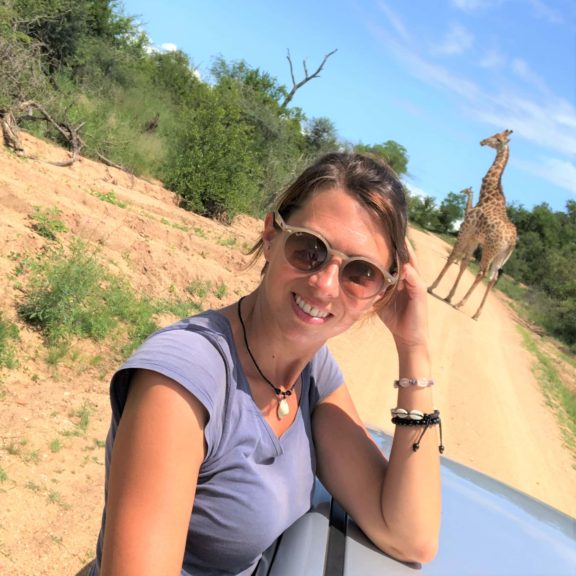
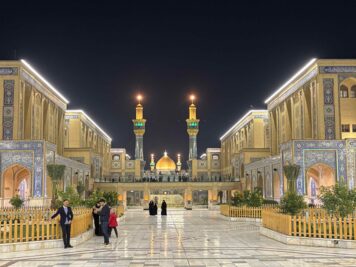
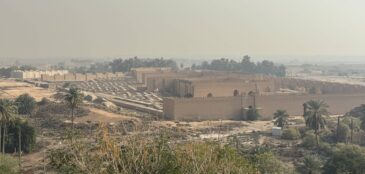
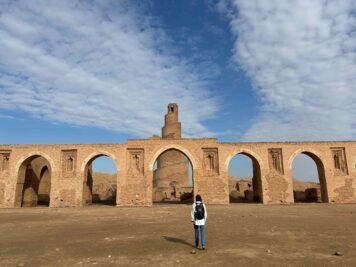
This Post Has 2 Comments
I really enjoyed this article, it was so descriptive I felt like I was on the trip as well. I’ve explored many places in Kenya but now you’ve made me want to explore more of the coast.
I’m happy to hear it:) It really is beautiful and for sure a great place to explore!